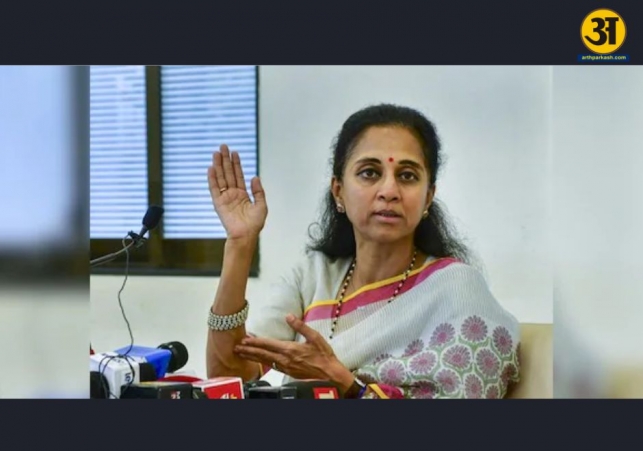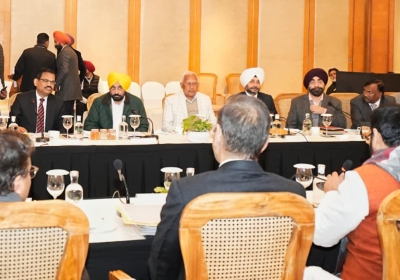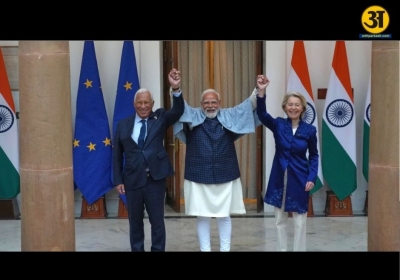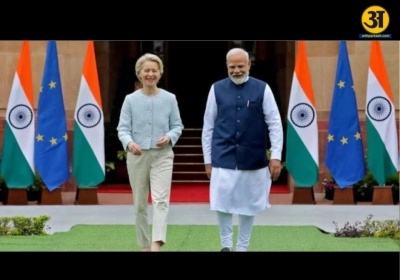
Supriya Sule proud to lead centre’s team for Operation Sindoor
‘Proud, unwavering’: Supriya Sule chosen to lead Centre’s delegations for Operation Sindoor
Supriya Sule, a senior leader of the Nationalist Congress Party (NCP), has accepted the central government’s invitation to lead one of the all-party delegations visiting important countries. The goal of these delegations is to show the world that India is united and firm in its fight against terrorism, especially following recent actions like Operation Sindoor.
Sule expressed her honor and gratitude for this responsibility. She thanked Prime Minister Narendra Modi, Union Minister Kiren Rijiju, and the Ministry of External Affairs for selecting her. She also thanked the people of her parliamentary area, Baramati, for their continued support. Through her message on social media, she said the mission of the delegations is to deliver a strong message from India: zero tolerance against terrorism.
Sule also emphasized national unity and pride. She said, “We stand as one nation—proud, strong, and unwavering. Jai Hind.” This message is especially important as it comes amid political tensions surrounding the delegation’s composition.
Other leaders chosen to head these delegations include BJP’s Ravi Shankar Prasad and Baijayant Panda, JD(U)’s Sanjay Kumar Jha, DMK’s Kanimozhi, Shiv Sena’s Srikant Shinde, and Congress leader Shashi Tharoor.
Controversy over Shashi Tharoor’s appointment
The central government’s decision to send multiple delegations abroad to explain India’s position on terrorism has caused a political controversy. The Congress party did not officially nominate Shashi Tharoor, a Congress MP from Thiruvananthapuram, for these delegations. Despite this, the government announced Tharoor as one of the delegation heads.
Tharoor responded by saying he felt honored by the government’s invitation. He tweeted that when the national interest is at stake and his help is needed, he will not refuse. “Jai Hind!” he added.
However, the Congress party’s General Secretary Jairam Ramesh criticized the government’s move. He said Congress had already sent names of four MPs to the government for these delegations, and Tharoor’s name was not among them. Ramesh called the government’s announcement dishonest because it did not respect the party’s official list.
This disagreement has raised questions about coordination between the central government and the Congress party. The Congress insists it will not change the names it has submitted. Meanwhile, the government has gone ahead with its own decisions.
India faces ongoing challenges due to cross-border terrorism, especially from Pakistan. The government’s recent Operation Sindoor was a military effort aimed at countering terrorist activities. To strengthen its message internationally, the government decided to send all-party delegations to key countries. The aim is to show India’s united front and explain the country’s actions and concerns.
Having leaders from different political parties leading these delegations is meant to show that India’s fight against terrorism is not just a government or party matter but a national priority.
Supriya Sule’s acceptance and strong statement underline the commitment from opposition parties as well. Despite political differences, these delegations present a unified message to the world that India will not tolerate terrorism.
ALSO READ: Rajnath Singh visits second military base, asks IMF to rethink aid to Pakistan
ALSO READ: India-Pakistan DGMOs agree to continue steps to ease border tensions
Political impact and reactions
The announcement of delegation leaders became a topic of political debate. While the government’s move aims to display unity, it also exposed rifts. The controversy around Shashi Tharoor’s nomination shows the sensitivity in managing political cooperation.
Congress leaders feel that the government should have consulted them before naming leaders. They worry that bypassing party decisions damages trust and cooperation.
On the other hand, Tharoor’s acceptance shows that some leaders are willing to put aside party differences for national interest.
This episode reflects the complexities in Indian politics, where cooperation on important national issues can sometimes face hurdles due to party rivalries.
Supriya Sule’s leadership in one of the delegations reflects India’s strong stance against terrorism. The all-party delegations are important for sending a united message internationally.
While political disagreements exist, the overall goal remains clear: to show the world that India stands united and firm against terrorism. This mission is vital for India’s security and its image abroad.
Through efforts like these delegations, India hopes to gain international support and understanding for its actions, especially following operations like Operation Sindoor.
The government and opposition leaders alike recognize the need to work together on such critical issues, despite political differences, to protect the nation and its people.





